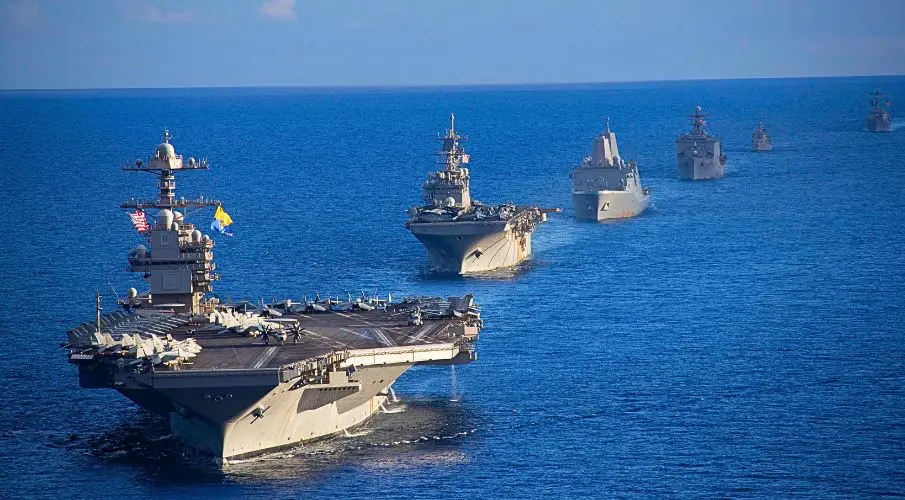"These boats are 2,000 miles from the United States. They cannot travel more than 100 miles." With this sentence, Rand Paul, Republican from Kentucky and one of the few remaining realists in his party, summed up the president's Venezuela strategy. It was no rhetorical slip, but a sober remark on the absurdity of a military operation that never made sense - and yet came dangerously close to becoming reality.
While Donald Trump publicly insists that a war against Venezuela is "unlikely," he simultaneously leaves open the possibility of land strikes. The naval units to which Paul's statements refer lie far out in the Atlantic, too distant to be logistically feasible for an invasion. In fact, U.S. Navy units regularly operate in international waters about 200 kilometers - roughly 108 nautical miles - off the Venezuelan coast. This presence is lawful under international law: it lies outside the territorial waters but within the exclusive economic zone. From there, reconnaissance and deterrence can be carried out, but an invasion is neither prepared nor logistically possible. There are no amphibious carriers, landing platforms, supply ships, or the broader infrastructure needed to bring troops ashore and hold territory. The formation therefore serves not operational planning but demonstration - a show of power, not a military option. Official statements from the U.S. Southern Command (Miami), Navy fleet reports, and maritime tracking data (AIS, Naval Vessel Tracker). U.S. Navy warships are active in the central Caribbean, often in international waters near the Venezuelan coast. Their exact positions are not publicly traceable, as military units deactivate their AIS signal in operational areas for security reasons. Satellite data, navigational notices, and official communications from the U.S. Southern Command, however, confirm recurring presence about 200 to 300 kilometers off Venezuela - a classic show of force, not an invasion preparation.
See also our in-depth investigative report: "Fire Over the Caribbean Sea and the Phantom in the Mediterranean, Jordan Goudreau - While Venezuela’s Military Trains Civilians," at the link: https://kaizen-blog.org/en/feuer-ueber-dem-karibischen-meer-und-das-phantom-im-mittelmeer-jordan-goudreau-waehrend-venezuelas-militaer-zivilisten-trainiert/
Rand Paul, who has long positioned himself as a voice of restraint within the Republican Party, has criticized this policy with unusual sharpness in an interview. For him, the attempt to pressure Venezuela militarily is not only a strategic mistake but also a moral transgression. "You can’t liberate a country by bombing it," he said during the debates on Syria and Iraq. His words now apply again to Latin America, where Washington has failed for decades whenever it tried to confuse power with force.
Behind Trump’s rhetoric lies a pattern that has long disturbed Rand Paul: the habitual resort to military threats whenever diplomacy requires patience. Officially, it is about drug routes and security interests, but in reality about political symbolism - about showing toughness where no solution is in sight. Paul’s warning that the ships "cannot travel more than 100 miles" is, in this sense, more than a logistical observation. It is a commentary on the mental distance between Washington’s rhetoric and reality.
"There are reports that you are considering airstrikes within Venezuela. Is that true?"
Trump: "No, that’s not true."
The senator thus remains an exception within a party that usually treats criticism of Trump as betrayal. Yet his stance shows that even among Republicans, doubts are growing about whether America’s strength truly lies in governing through threats. While Trump speaks of "sovereignty," his course in truth remains a game of risks that knows no clear goals - only headlines. Rand Paul understands this. And perhaps that is precisely why his voice sounds more important these days than many others: because he says what few in Washington dare to say.
Investigative journalism requires courage, conviction – and your support.
Please also strengthen our journalistic fight against right-wing populism and human rights violations. We do not want to finance ourselves through a paywall so that everyone can read our research – regardless of income or origin. Thank you very much!

